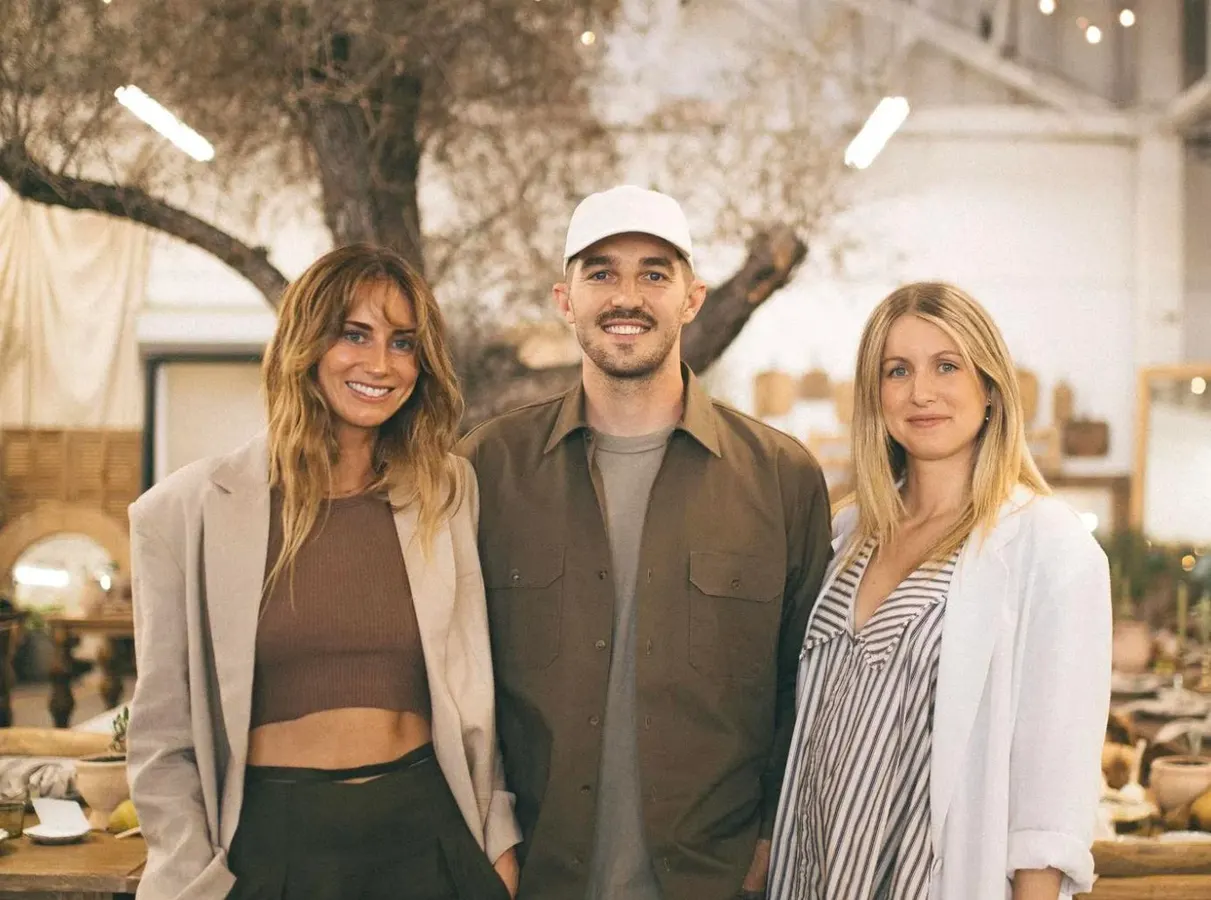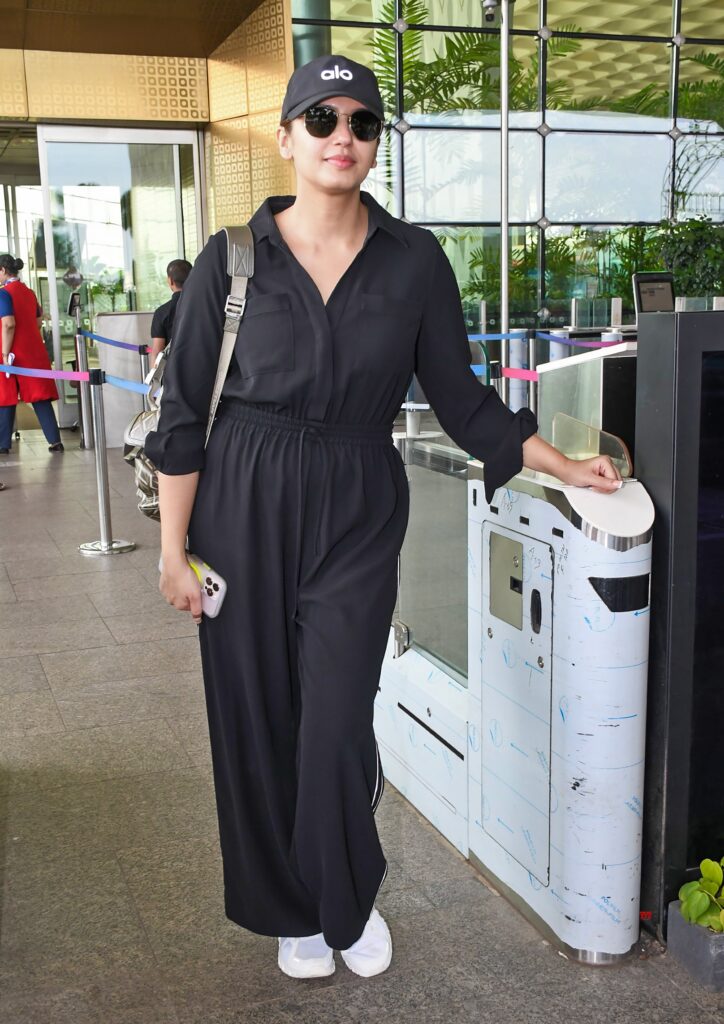Copyright Forbes

When the cofounding trio of Olive Ateliers launched the home decor brand in 2021, they were dropping curated collections of one-of-a-kind objects on Instagram and selling them in their backyards. The cofounders — Kendall Knox (Chief Brand Officer), Ben Knox (CEO) and Laura Sotelo (Chief Merchandising Officer) — didn’t have a brand deck, logo, or press release. It began as a side hustle powered by instinct, aesthetic conviction, and a clear gap in the home decor market. What started as an idea soon evolved into a Los Angeles pop-up held every second Saturday, where hundreds of people would line up before sunrise to shop rustic stools, Turkish pots, marble sinks, terracotta planters, and other treasures sourced from India, Indonesia, Morocco, Greece, and France. Fast-forward to today: the Knoxes and Sotelo have taken Olive Ateliers from a backyard concept into a multi-channel design brand with sold-out collections, a growing trade business, and a customer list that reads like a Hollywood call sheet, including Kendall Jenner, Elsa Hosk, Kim Kardashian, Benny Blanco, Aurora James, Pia Baroncini, and Richard Christiansen of Flamingo Estate. In January 2023, the brand opened a 30,000-square-foot flagship in Los Angeles’s Arts District, followed by a permanent e-commerce platform in June 2024 for nationwide shopping. That unpolished, organic start would become the foundation of Olive Ateliers’ now-cult following: a brand that’s as much about feeling as it is about furniture. What began as sourcing vintage and antique finds has evolved into a full-scale lifestyle company, complete with its first in-house furniture line, Vestige (inspired by the ethereal beauty of classic French gardens; “vestige” meaning a trace of something that remains). It’s a fitting name for a brand rooted in celebrating “objects with old souls” and the belief that beauty lives in imperfection. As the team moved from sourcing to creating, they applied the same instinctual lens that defined Olive’s early days. “We don’t look at what other retailers are doing,” says Sotelo. “Design starts with a feeling. If we wouldn’t want it in our own homes, it’s not right for Olive.” Before Olive Ateliers, Kendall Knox built her career in PR and brand marketing at Revolve, while Ben Knox came from a consumer goods background at Red Bull and Keto Farms. Sotelo, also Australian, hails from interior design and real estate management. Together, the trio blends aesthetic intuition with operational precision. “There are incredible marketplaces out there,” says Kendall Knox, “but there was no curated brand that sourced the product we loved. The problem we came up against while trying to furnish our homes was that the style we loved was hard to find all in one place." They set out to fix that — this was the white space that needed a splash of beige. From the beginning, the founders rejected industry formulas. “We loved the word atelier because it represents a workshop — ever-changing, scrappy and undone,” continues Knox. “That word resonated with us because we didn’t want to be another overly polished showroom.” In a time when virality often feels engineered, Olive Ateliers built momentum the grassroots way: through genuine word-of-mouth. “In the beginning, there was no science,” Knox admits. “It was as much as we could get our hands on. Everything would sell, and we couldn’t even stay open. We had nothing left. You can’t re-engineer that kind of scarcity.” It worked. The brand’s first in-person drop drew over 400 attendees, and its first online sale sold out in under 10 minutes. Fast-forward to today: Olive Ateliers has grown from three cofounders to 29 employees, with 59% year-over-year revenue growth and over 40,000 units sold in 2025 — up from less than 1,000 in its first year. Kendall Knox refers to it as a “Supreme meets FirstDibs meets Restoration Hardware” model: high design meets high demand, with the power of urgency and the thrill of the hunt thrown in. If Olive Ateliers’ early years were about curation, Vestige marks its first step into creation. The collection — featuring hand-crafted pieces like the Juliet Chair, Garçon Martini Table, and Verona Loveseat — sold out almost instantly. “We started to design pieces that would seamlessly complement our vintage assortment," Kendall explains. "We tested it, we integrated it into our collections without advertising it or saying that this was our first design product. It was there and people naturally gravitated towards it.” “We just started selling them… We didn’t say, ‘Hey, this is the Juliet chair, this is the Serendipity chair, we now design things.’ We just quietly introduced them, and they sold like crazy," adds Ben Knox. That soft launch led to the full Vestige line, which sold out almost entirely within days. “It’s good to sell out and be scarce,” Ben Knox continues. “It means people love what we’re doing. But the bigger lesson is that scarcity sends a signal — not everything should be infinitely available.” Their instinct has since become an industry playbook: one fashion survey found 66% of brands consider the product drop model important or very important to their business; for footwear brands, that number climbs to 78%, according to Queue-it. The founders are quick to note that hype is never the goal: it’s a byproduct. “We’ve had amazing celebrity moments,” adds Kendall Knox, “but we never chase them.” From Melissa McCarthy shopping at their first pop-up, to Kristen Bell arriving in a pickup truck to load antique sinks, to Jeremy Allen White recently purchasing from the Vestige collection — every celebrity client moment has been purely organic. Ben Knox continues: “Marketing is about touchpoints. One post doesn’t move the needle — it’s consistency. All of a sudden, you’re like, wait, I’m about this. I need to follow this. And I think that’s just what was happening. You’re everywhere because people feel it.” From day one, Ben Knox approached Olive Ateliers with a business discipline learned from his CPG days. “We sought out, when starting the company, to do some really big-company things up front. So first, we defined an internal culture based on leadership principles. We set 10 leadership principles up front. Company culture is not about Hawaiian shirts and eating pizza lunches on Wednesday. It’s about how we operate together as professionals.” Among them: Think Big, Far From Average, Seek the Truth, and Burn Rubber (a nod to grit and determination; basically the get-things-done leadership principle). Ben Knox’s favorite business mantra: Strong Opinions, Weakly Held. “Have conviction,” he says. “Make decisions quickly. But be ready to change your mind when new information appears.” (This concept, popularized by Stanford futurist Paul Saffo and embraced in Silicon Valley by leaders like Reid Hoffman, underscores the balance between conviction and adaptability.) That philosophy has allowed Olive Ateliers to evolve from a pop-up to a brick-and-mortar to nationwide e-commerce, with both direct-to-consumer and trade relationships. “We said we’d never sell online,” Knox laughs. “Now we do. Because our customer asked for it.” At its core, Olive Ateliers is built around emotion. “It’s not e-commerce, it’s emotion,” says Kendall Knox. “We create moments.” She credits her Revolve experience for shaping that mindset. “At Revolve, we were selling lifestyle, not product. We don’t measure success in sales alone, it’s about how people interact with the space, the team, and the brand. Did they bring a friend? Did they share it online? That’s the metric.” Sotelo, who oversees design, ensures every piece continues to carry the brand’s DNA. “We’re never trend-driven,” she says. “We design from a feeling. If we wouldn’t want it in our own homes, it’s not right. Our products must have soul — built to last, like the antiques that inspired them.” Almost five years in, Olive Ateliers is expanding its footprint and assortment — planning additional collections each year, and more recently, its collection of designed interior furnishings, Lieu de Vie (“living space,” or more poetically, “a place where life unfolds”). “We’re aware of what’s going on around us, but we don’t let it distract us. If it feels authentic to the brand and serves our customer, it’s the right decision,” Sotelo adds. Yet through all the momentum and celebrity moments, the founders remain focused on their original ethos: build slowly, stay authentic, and never chase hype. “We’ve had our heads down, and we still have our heads down — tunnel vision, always hustling," Kendall Knox says. "We never actually look up and say, Oh, Jennifer Aniston follows us, let’s take a break. It’s always, What else can we do? How can we keep building?” “It’s a privilege to have a piece of ours in someone’s home," Sotelo adds. "We want it to have integrity, craftsmanship, and soul — to be something that can be passed down.”



